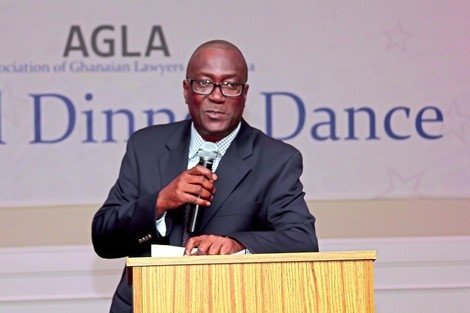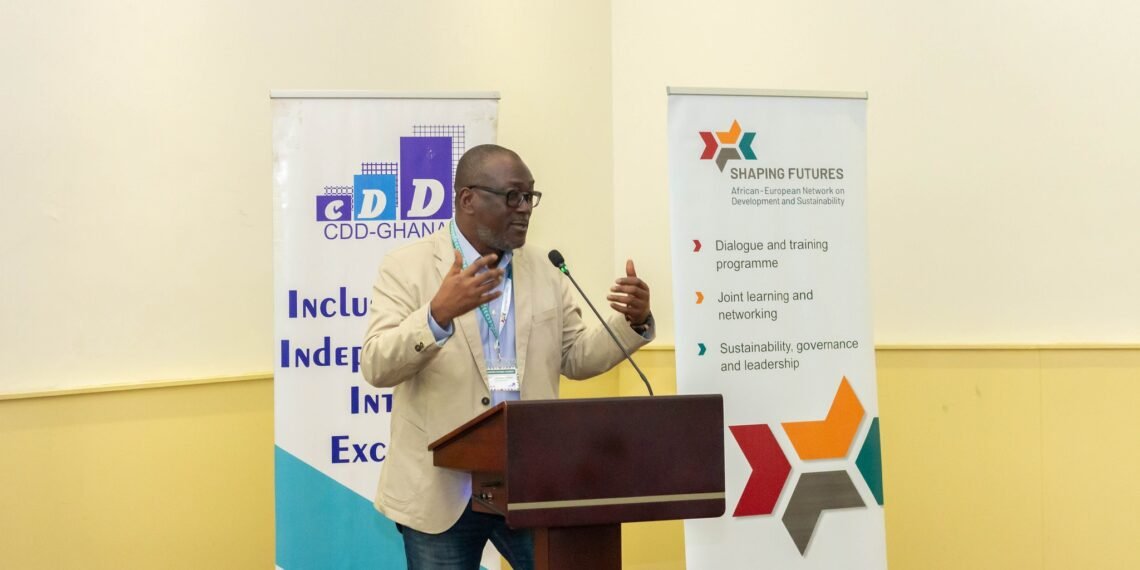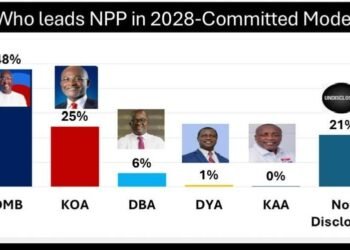In a powerful critique of Ghana’s anti-corruption framework, Professor H. Kwesi Prempeh, Executive Director of the Ghana Center for Democratic Development (CDD-Ghana) has called for a radical shift in the country’s approach to fighting corruption.
In a thought-provoking public statement, the Chairman of the ongoing Constitutional Review Committee, Prof. Prempeh drew attention to what he describes as Ghana’s “schizophrenic attitude” toward corruption.
This approach, Prof. Prempeh noted, heavily scrutinises gift-taking by public officials but ignores the equally problematic phenomenon of public gift-giving by the same individuals.
According to Prof. Prempeh, while society rightly condemns public servants for accepting secret “gifts” (often viewed as bribes), there is a dangerous silence—or even celebration—when these same individuals make grand donations in public.
“In fact, we hardly question such public gift-giving by our public servants. Depending on who or what cause they give to, they may be widely praised for their ostentatious display of ‘charity’ or generosity.
“Thus, regardless of how hefty the amount of a gift is in proportion to the gift-giver’s known income, our “generous” public servants often get effusive praise if they donate to a church or mosque or school or for a needy patient’s medical treatment abroad.”
Professor H. Kwesi Prempeh, Executive Director of the Ghana Center for Democratic Development (CDD-Ghana)
Prof. Prempeh noted that some even set up ‘foundations’ to advertise and routinize their gift-giving.
He added that “some have been known to build and donate police stations for the police, when their only known source of lawful income is their official salary—yes, public servants on a fixed salary pretending to rival the Gates or Ford Foundation.”

However, Prof. Prempeh expressed grave concern that in Ghana, such behavior has come to be accepted as normal.
“Any attempt to question it is often met with ridicule or dismissed with sarcasm—’ Wo sika bi ayera anaa?’ (Has any money of yours gone missing?)”.
Professor H. Kwesi Prempeh, Executive Director of the Ghana Center for Democratic Development (CDD-Ghana)
This, in his view, undermines the country’s commitment to fighting corruption, asserting that the country cannot be sincere or serious about fighting corruption if it dwells only on the gift-taking side of corruption, which is typically done in private or secret, while it leaves the gift-giving side unregulated.
He pointed out that it is usually easier to detect the signs of corruption from the spending habits of public officials rather than from what they secretly receive.
Balancing the Scrutiny
Prof. Prempeh emphasized that many countries have begun recognizing the need to balance the scrutiny on both “receiving” and “spending” sides of corruption.
According to the Executive Director of the leading policy and research think-tank, tools such as lifestyle audits and unexplained wealth laws are increasingly being adopted globally because of the recognition that lavish spending by public officials can serve as red flags for corrupt practices.
Ghana, however, seems to be lagging behind in embracing this shift. His comments come in the wake of public uproar over a viral video showing Sammy Gyamfi, the Acting CEO of Goldbood and the National Communications Officer of the ruling National Democratic Congress (NDC), handing out foreign currency from his car to a controversial televangelist.

Prof. Prempeh sees this as a potential turning point in public perception. “Our public attitudes about such ostentatious gift-giving by public officers may be changing,” he noted, though he questioned whether the backlash was due more to the identity of the recipient than the principle involved.
“Did Agradaa ruin everything for Lawyer Sammy Gyamfi? Did the young lawyer choose the wrong beneficiary for his act of ostentatious charity?” he asked rhetorically, highlighting how the choice of beneficiary—rather than the public officer’s spending—often determines whether public backlash ensues.
Prof. Prempeh also revealed that the new Executive Branch Code of Conduct falls short in this area.
“The section on Gifts regulates only the receiving or taking of gifts. Other than a paragraph on hampers, there is nothing on public giving of ‘gifts’ or other forms or acts of public ‘charity’ by the salaried public officers who are covered by the Code”.
Professor H. Kwesi Prempeh, Executive Director of the Ghana Center for Democratic Development (CDD-Ghana)
This, he argued, reflects the broader societal blind spot and tacit tolerance for ostentatious displays of wealth by public officials.
He therefore called for concrete reforms to the Code of Conduct to address this loophole.
Specifically, he proposed that the Code should prohibit government appointees from engaging in unregulated acts of public charity and bar them from setting up private foundations during their time in office.
“The Code must put the class of public officers it covers on notice that, once you accept to serve in high public office, the ‘conduct’ to which you would be held accountable includes the lifestyle and spending you display in public”.
Professor H. Kwesi Prempeh, Executive Director of the Ghana Center for Democratic Development (CDD-Ghana)
While clarifying that he is not against genuine acts of generosity or philanthropy, Prof. Prempeh insisted that these must be subject to regulatory oversight when it involves public officials.

“Unregulated public gift-giving and other ostentatious displays of charity by salaried public servants raise not just appearance concerns but legitimate questions about the source of the funds and, thus, undermine anti-corruption efforts.”
Professor H. Kwesi Prempeh, Executive Director of the Ghana Center for Democratic Development (CDD-Ghana)
The public intellectual and legal scholar concluded with a rallying call for a new ethical culture in Ghana’s public service—one that takes seriously not just what public officers receive, but how they spend.
His proposals, if taken seriously by lawmakers and reformers, could significantly shift the country’s anti-corruption agenda from one focused narrowly on secret transactions to one that also holds public officers accountable for their lifestyle choices.
Prof. Prempeh’s statement lays down an urgent challenge to the Ghanaian state: to rethink the norms that allow public officers to masquerade as philanthropists while undermining transparency and accountability.
It is a timely call to confront what he views as one of the most subtle yet dangerous blind spots in the country’s anti-corruption efforts.
READ ALSO: Technical Glitch on Jubilee FPSO Disrupts Atuabo Supply Chain























